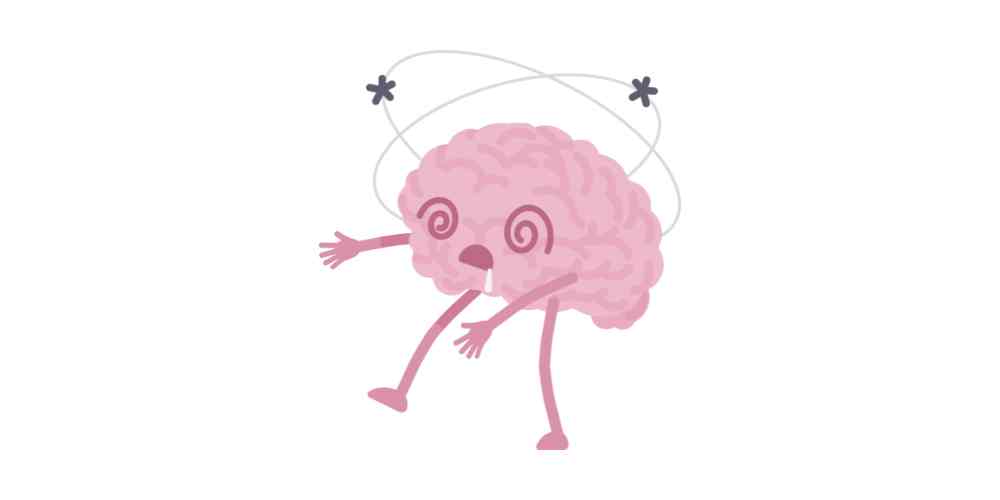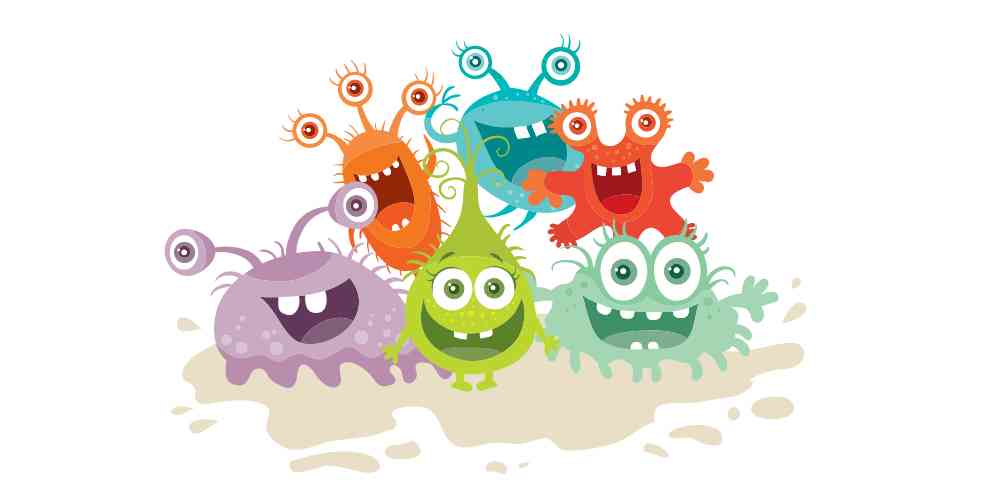So what exactly is gut ‘Dysbiosis’ and how can it be related to Attention Deficit Hyperactivity Disorder (ADHD)? Can the tiny microbes living in our gut create chaos that then affects mood, learning, paying attention, sitting still, concentration and impulsiveness?

Dysbiosis is a term used to describe an imbalance in the gut causing gastrointestinal issues. It’s a term that’s certainly gaining momentum across different fields of medicine.
Not only is the medical community intrigued, but particularly those researching neurological conditions.
How gut health could affect conditions such as ADHD, is also drawing the attention of everyday people like myself.
As the number of adults diagnosed with ADHD climbs, there seems to be a bigger group of people looking for ways to improve their lives and reduce their symptoms. I’m sure I’m not the only person with ADHD questioning this stuff!
what is Dysbiosis?
The term Dysbiosis (sometimes named dysbacteriosis) is used to describe an imbalance in the microbial function on or inside the body. If this is in the gut, the imbalance could lead to intestinal problems which is still being investigated.
Dysbiosis can happen when microbes in the gut are out of whack. Some of the latest studies are now suggesting that this could cause certain microbes to dominate over others. It sounds scary, but also very intriguing.
By having too many in one group or community, the ‘peace‘ between the groups could cause issues. This could possibly then create symptoms of digestive disturbance like bloating, diarrhoea, gas, cramping, and constipation.
Can GUT Dysbiosis relate to ADHD?
As someone with both ADHD and Coeliac Disease (an autoimmune disease affecting the small intestine), I’ve begun researching whether gut dysbiosis and ADHD could somehow be connected.
Read more about ADHD and Coeliac Disease HERE.
From what I’ve learned so far, environmental factors can cause harm to the body’s microbiome as a whole, impacting the gut. Factors like the amount of additional chemicals we are exposed to, toxic stress, and the food we eat, could all affect our microbiome in some way.
Lifestyle Factors

I have no doubt now that my diet and certain lifestyle factors have in some way contributed to me developing ADHD, but through my gut, and obviously since birth. How this ties in with Coeliac Disease is also intriguing because some symptoms overlap.
Now, this may sound odd, but to prove this, I have to work out if I can balance the microbes in my gut first and then measure any noticeable differences in the symptoms of ADHD.
My main aim is to see if my symptoms of ADHD can be reduced. This will involve cleaning up my diet by including foods based on my microbiome analysis testing.
Making some adjustments to aspects of my lifestyle will also be involved like reducing stress. That box has already been ticked by quitting teaching.
ADHD symptoms can vary in severity

Adults with ADHD face different challenges because symptoms can vary greatly. What might be a problem for one person, may not bother the next.
Some adults have issues maintaining attention while some try to cover up internal hyperactivity which can be exhausting. I know the internal tornado within me always made it difficult for me to relax. I still don’t feel very comfortable in a resting position.
Symptoms that are bothersome to me include the following:
Internal restlessness, fidgety behaviour, sleep disturbance, non-stop talking, sensory issues (touch and sound), racing around like a madwoman, lack of concentration, highly distractable, and non-stop thinking about how to solve the world’s problems! Let’s just say, I drive my husband (and myself) mad sometimes!
That list is not exhaustive! Sounds awesome, doesn’t it? Hmmm…. I’m laughing as I write this because let’s not forget – getting stuck on very small points of detail for long periods and perfectionism to the extreme!

Read more about how ADHD can affect sleep here
Just how I measure a reduction in these symptoms also comes with difficulty as changes need to be quantifiable to be measurable.
In other words, I need data that I can measure, more than just ‘a feeling’ that I feel better or less hyper if you get my drift.
Managing ADHD Symptoms
Most of the research I’ve stumbled across so far focuses on medications to treat ADHD symptoms.
ADHD is currently classified as a neurodevelopmental disorder. Medication is often considered as the first line of treatment. This makes sense because the medication treats symptoms relating to the nervous system like impulse control and paying attention.
However, the more research I’ve done, by balancing certain microbes in the gut, a reduction in ADHD symptoms sounds like it could be possible.
I find that my medication just masks symptoms rather than ‘fix’ them! The symptoms are still there when the medication wears off and there seem to be no long term benefits from it so far.
I’m not sure, but I think some adults out there like me, might possibly want to have their ADHD symptoms reduced. At least the annoying ones for sure! This would allow for an opportunity to harness the potential, while reducing the annoyance.
If this is possible for me to do this, then I will dedicate my time to getting this information out to everyone I possibly can.
This may be a big call, but if I don’t try, I’ll never know. And that’s one of the very positive things about my ADHD – I question EVERYTHING! It’s something I’ve always done, it got me into a lot of trouble at school, but I see it as a bonus when trying to change something or solve something.
so why does Dysbiosis happen?

Aside from a poor diet, factors like antibiotic overuse may also contribute to gut dysbiosis.
Research now points to other environmental factors such as processed food, additives, prolonged stress and exposure to chemicals as potential contributors. They all might play some sort of part in creating the imbalance but just how, is still unknown.
There are so many things that we are exposed to daily that can disrupt the balance in the gut. Because research is still in the early stages of identifying environmental causes, we won’t know much until ‘themes’ and ‘patterns’ emerge.
This will help scientists narrow down just what microbes need to be reduced or increased for optimal neurological health. But to do this, testing of the gut microbiome needs to be analysed on a large scale over time. Longitudinal studies will hopefully then provide data on how our gut microbiota has changed over time.
Cross-referencing data across countries could also offer insight into how dietary changes have impacted different populations in different regions across the globe.

which microbes should be decreased or increased?
With the help of ‘metagenomics’, which is a sequence-based approach to analysing gut microbes, questions as to what microbes should be altered, may be answered in the not so distant future.
There’s definitely been an increase in articles published on the topic over the past 6 months. These articles have been based around immunology, gastroenterology, epigenetics, the human genome, and the relationship between the gut and neurological conditions.
Luckily, we’re fortunate that there are scientists around the world currently using metagenomics to work out what certain microbes do and how they behave in groups.
A recent article published in the Human Microbiome Journal has just collated the gut microbiome composition of thousands of people from across the globe, to piece this information together.
It’s actually the first article I’ve read from start to finish and that’s a first for me because as geeky as I may sound, I’m not a lover of books or reading.
What they have found, are links between the gut make-up and its level of diversity, and how this then relates to certain personality traits. If you’re interested in finding out more about it, click the link above or in the ‘original sources’ link below.
I’ve had my gut microbiome tested twice now and it’s offered valuable insights into my diet and overall health. This included changes I could make to my food choices for optimal health.
I can’t even pronounce the names of the microbes, but with every day that passes, I’m doing my best to give it a go because I want to see if it works!

a word of caution!!!
It’s really important to point out at this point, my microbiome report is only a guide and is UNIQUE to ME and ME only.
Anyone who goes through this process MUST be responsible for their own health and well-being. You should NEVER go without important nutrients in your diet or make changes to medication without first consulting a licensed medical professional or practitioner. I cannot stress this enough!
At this stage, science is still trying to figure out how it’s all connected, but I’m grateful to be part of this pioneering process in my own, unique way.
Original Sources:
1. Dysbiosis Disrupts Gut Immune Homeostasis and Promotes Gastric Diseases
2. Gut microbiome composition and diversity are related to human personality traits
https://www.sciencedirect.com/science/article/pii/S2452231719300181




Just found your Info!!! I also have CD and ADD. How did you get your microbiome tested???
HI Andrea,
Glad you found my info. I got my microbiome tested here in Brisbane, Australia. I’ve had it tested 3 times now and am getting it done 6 monthly. If you are in Australia, you can get it done at http://www.Microba.com. If you’re in another country, try googling gut microbiome testing and analysis to find one near you. Good luck and it’s very worth doing as I’ve noticed a massive difference to my ADHD symptoms since eating foods suggested through the report, and making lifestyle changes.
Emma